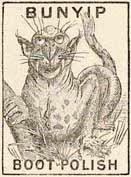TUCKED AWAY in The Finko & Rickety Review is a list of recent adjudications by the Press Council as it currently exists. This is the body, remember, which the inquiry’s authors – a judge and a former Age reporter – wish to see greatly expanded, so it is interesting to note the attitudes any fresh body would almost certainly expand and promote. Its ruling in the matter of Case #1468 (page 409) rather suggests it currently views truth as a very subjective affair, the accuracy of any report needing to be judged not against fact but the ideologically sound views held by people like, well, left-leaning former judges and superannuated hacks from withering newspapers.
Case 1468 concerns complaints filed by third parties in regard to the West Australian’s front page picture of an Aboriginal man snapped in the filth of his own kitchen. This is how Finko & Rickety summarised the Press Council deliberations:
Photo of Indigenous man in his kitchen with caption referring to his being ‘surrounded by squalor’, accompanying a story about a WA Government report on living conditions in Roebourne. The next day the newspaper published 16 letters accusing the man of not taking responsibility for keeping his kitchen clean and tidy. A smaller version of the photo was re-published with the letters.
At a risk of levity – quite likely an indictable offence if Finko & Rickety get their wish to see blogs regulated and supervised – it should be noted that the Billabong’s sink is at this very moment chocka with unwashed dishes, the floor splattered with the home-cooked marinara that went into last night’s eggplant parma, the cat’s litter tray needs changing and the dead, chewed-up lizards she insists on bringing home must be found and thrown out. Later today these deficiencies will be set to rights, as the visitor scheduled to stop by for dinner and a stroll to the mooring might otherwise be inclined to regard the Professor as a bit of a grub. Mind you, domestic standards are still a smidgin' higher than those of Cyril Munda, whose kitchen prompted the Press Council to action.
Ah, but Aborigines are different, according to the Press Council. If a blackfella suffers from Ajax aversion, it is to be mentioned at a news organ’s peril. Incredibly, even though the kitchen’s owner professed himself entirely happy with the West Australian’s coverage, the Press Council upheld the complaint! The full ruling is here, and it is the last two-and-a-bit paragraphs which telegraph what Finko & Rickety regard as the sacred mission of the muscled-up press regulator they seek to see established:
…the man and other Aboriginal people in his community and elsewhere were very happy with the article and the attention it had drawn to their problems.
The Council regards the article as a frank and balanced report of concerns about conditions in Roebourne. Unfortunately the picture and its caption allowed the apparent thrust of the article to be distorted by focusing on conditions in one man’s kitchen, thereby conveying a misleading impression of the article and the man’s concerns. This effect was exacerbated by publication on the following day of an excessively large number of letters focusing on the state of his kitchen and making criticisms of him in very similar terms.
The Council considers that the newspaper erred in allowing these cumulative effects to occur. To that extent the complaint is upheld. On the other hand, the newspaper is to be commended for its decision to publish the article itself, which was a valuable contribution on a matter of great public importance.
In other words, an accurate report endorsed by its subject will not protect news organisations from being found guilty if someone – anyone! – thinks it may encourage a point of view they would prefer not to see aired. Andrew Bolt has already been found guilty of giving subjective offence to the Mordy-Litijus tribe. Now the rest of the media, including those voices which celebrated the columnist’s lynching, are being prepared for the same treatment.
Trash a few inconvenient freedoms and pretty soon you don't have any left at all.
